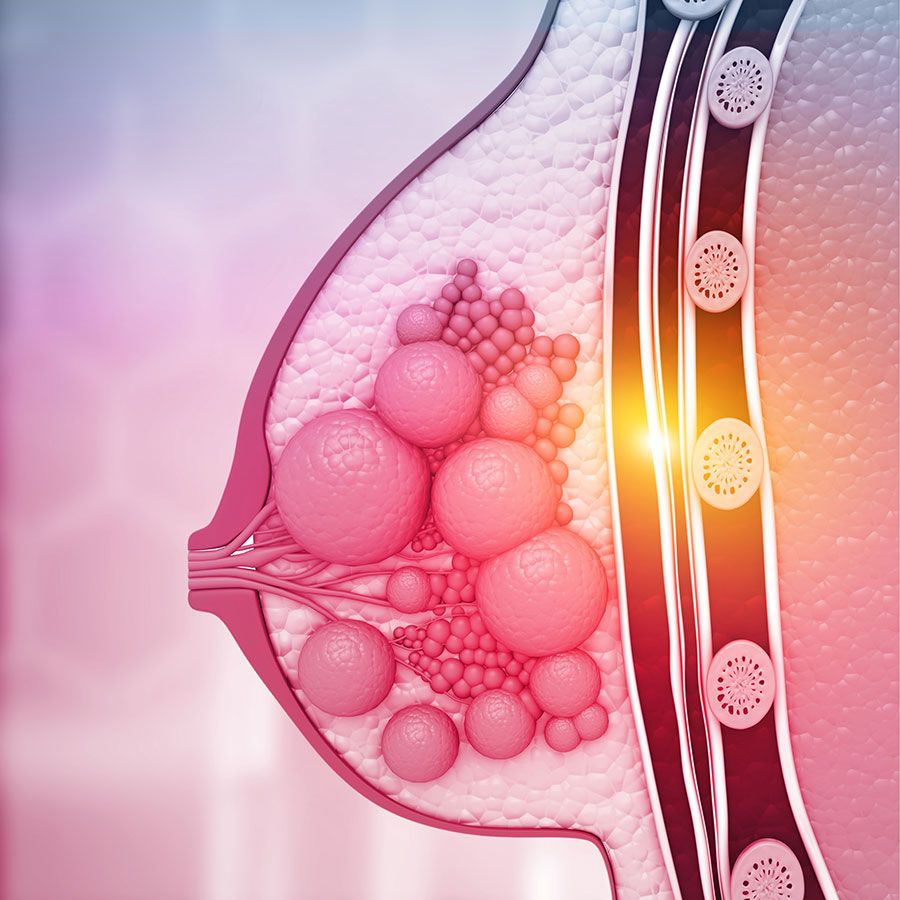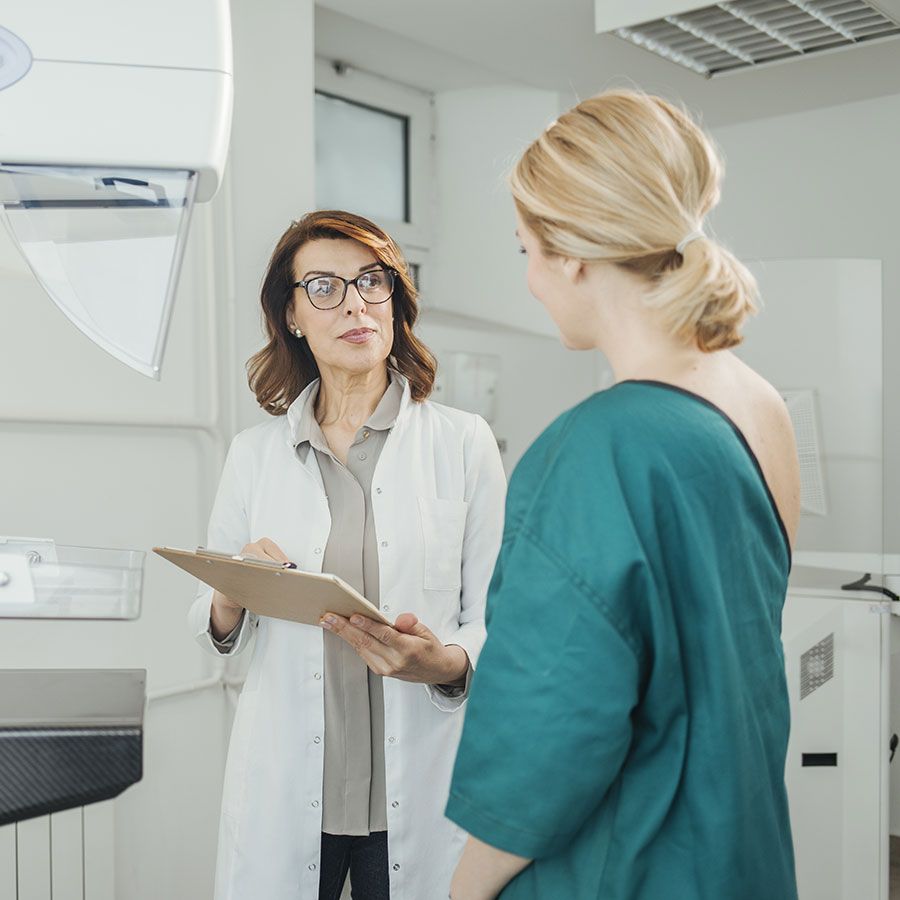Breast Cancer

What Is Breast Cancer?
This is a common disease where a malignant tumor has developed from cells in the breast growing out of control. It is the second leading cause of cancer deaths among women in the United States, right after lung cancer. About 1 in 8 US women (over 12%) will develop invasive breast cancer over the course of her lifetime. Although extremely rare, it can even develop in males (about 1 in 883).
There are different kinds of cancer within the breast. The type of cancer depends on which cells in the breast turn into cancer, from within the three main parts of the breast: lobules (milk glands), milk ducts, and connective tissue. Most breast cancers begin in the ducts or lobules.
Causes of Breast Cancer
It occurs when some breast cells begin to grow abnormally. These cells divide more rapidly than healthy cells do and continue to accumulate, forming a lump or mass (tumor). If left unchecked for too long a period, the cancer cells may spread (metastasize) through your breast to your lymph nodes or to other parts of your body.
This is why early detection of any breast abnormalities is so crucial. Women age 40 – 45 or older who are at average-to-high risk of breast cancer should have a mammogram (breast X-ray) scheduled once a year. The mammogram can detect a breast tumor up to two years before it can even be felt by you or your physician.

Cancer within the breast most often begins with cells in the milk-producing ducts (invasive ductal carcinoma). Although not as common, it may also begin in the glandular tissue called lobules (invasive lobular carcinoma) or in other cells or tissue within the breast.
Researchers have identified hormonal, lifestyle, and environmental factors that may increase your risk of developing cancer of the breast. Below are some of the most common contributing risk factors.
Common Risk Factors
-

Being Female – Women are much more likely than men to develop cancer of the breast.
-

Alcohol Abuse / Consumption – To reduce your risk, the American Cancer Society recommends limiting alcohol to no more than 1 drink per day for women and 2 for men. A drink is either of the following:
- 12 ounces of beer
- 5 ounces of wine
- 1.5 ounces of hard liquor
-

Increasing Age – Two-thirds of invasive breast cancers are found in women 55 or older.
-

Personal or Family History (Heredity)
-

Elevated Lifetime Estrogen Exposure, Including:
- Early-onset of menstruation (before age 11)
- Late-onset of menopause (after age 55)
- Older age of first childbirth (after age 30) or never having given birth
- Taking estrogen and progesterone after menopause
-

Hormonal Birth Control – To reduce this risk, consult your doctor about using non-hormonal contraception (IUD, condoms, etc.).
-

Exposure to High-Energy Radiation – Prior radiation therapy to the chest area
-

Race and Ethnicity – Caucasian women are more likely to be diagnosed with breast cancer, but African-American women are more likely to die from this disease. African-American women are also more likely to be diagnosed at a younger age (under 45).
-

Breast Implants – Although it is rare, some women with breast implants may develop a type of Anaplastic Large Cell Lymphoma (ALCL) in their breast(s). The risk of contracting ALCL seems to increase when the breast implants have textured (rough) surfaces as opposed to smooth surfaces.
See also Breast Implant-Associated ALCL (BIA-ALCL) and Blood Cancers (Lymphoma).
How We – And You – Can Help
Arizona Cancer Foundation is a program-based organization whose primary mission is to help people through cancer treatment and survivorship. We provide free services that increase the quality of life while people and their loved ones fight cancer. Specifically, we provide the non-medical supportive services that most insurance companies either don’t cover at all or not to the extent that is actually needed. We have 25 integrative and supportive services that help patients, their family members and caregivers.
If you wish to help us in our mission, please donate to this worthy cause. All accepted clothing (click HERE for an extensive list) and monetary donations are specifically used to help cancer patients, their families and caretakers by means of offering them non-medical, healthcare supportive services, financial aid services and cancer support groups, which help people through cancer treatment and survivorship as we strive to increase the quality of life of all those affected by cancer.
2625 N Craycroft Rd, Suite 215
Tucson, AZ 85712
Phone: 520-324-2840
Operating Hours:
Mon - Thurs: 9 AM - 5 PM
Fri: 9 AM - 1 PM
(Excluding Holidays)
Arizona Foundation for Cancer is a 501(C)3 non-profit organization.
All accepted clothing (click HERE for an extensive list) and monetary donations are specifically used to help cancer patients, their families and caretakers by means of offering them non-medical, healthcare supportive services, financial aid services and cancer support groups, which help people through cancer treatment and survivorship as we strive to increase the quality of life of all those affected by cancer. Please DONATE today!
Note: Practitioners and program leaders are independent contractors
BECAUSE TOGETHER IS ALWAYS BETTER
© Arizona Foundation for Cancer
